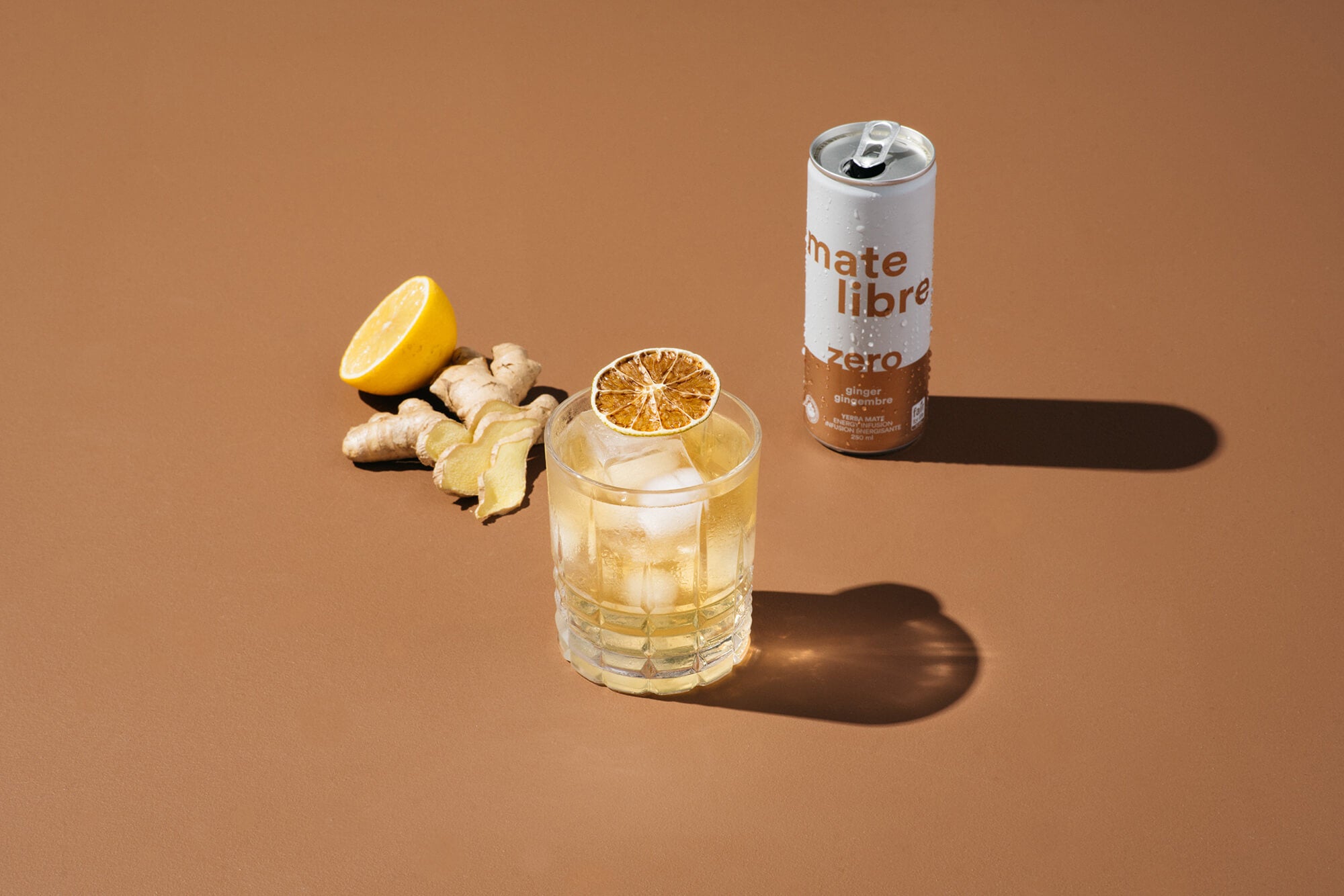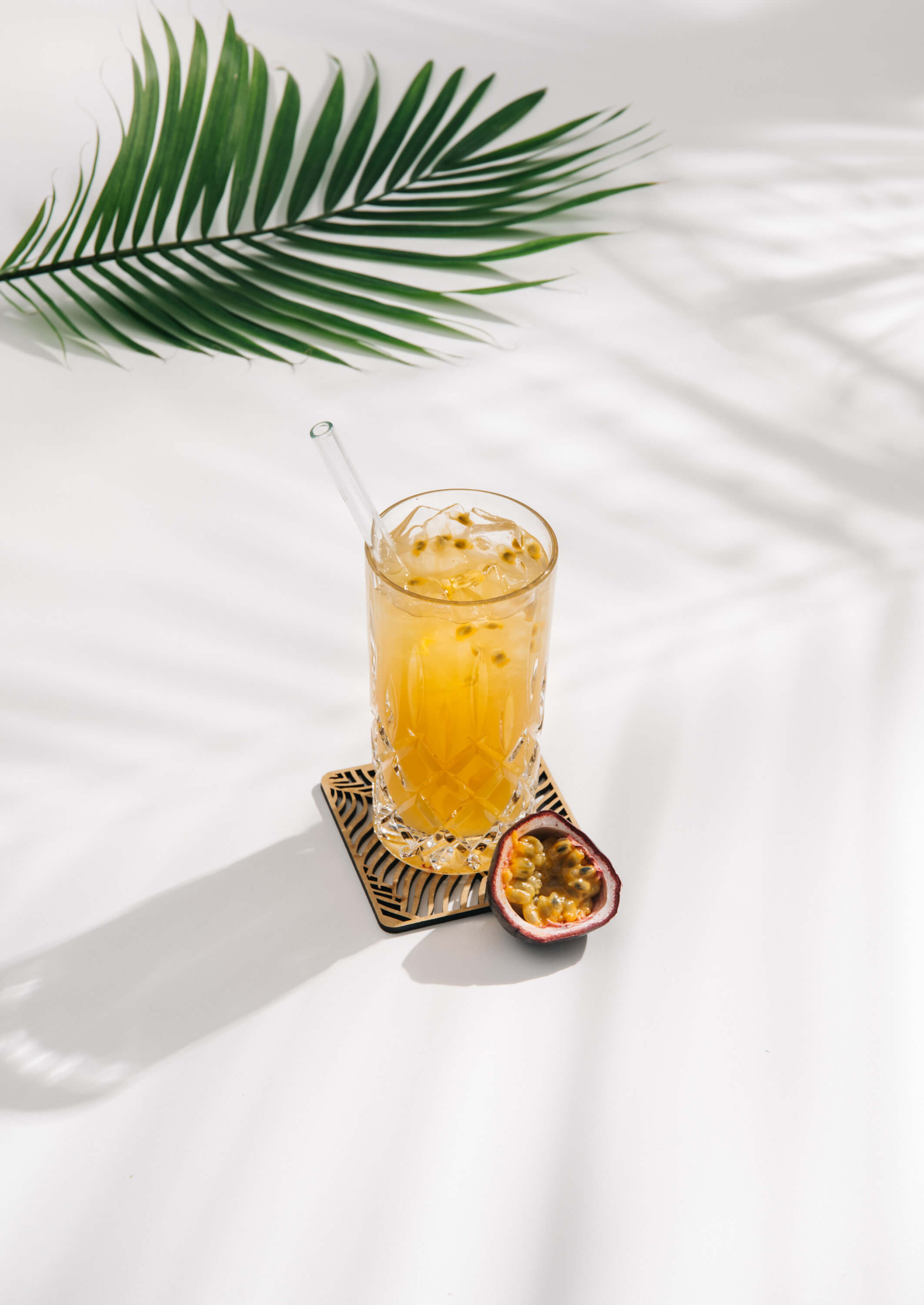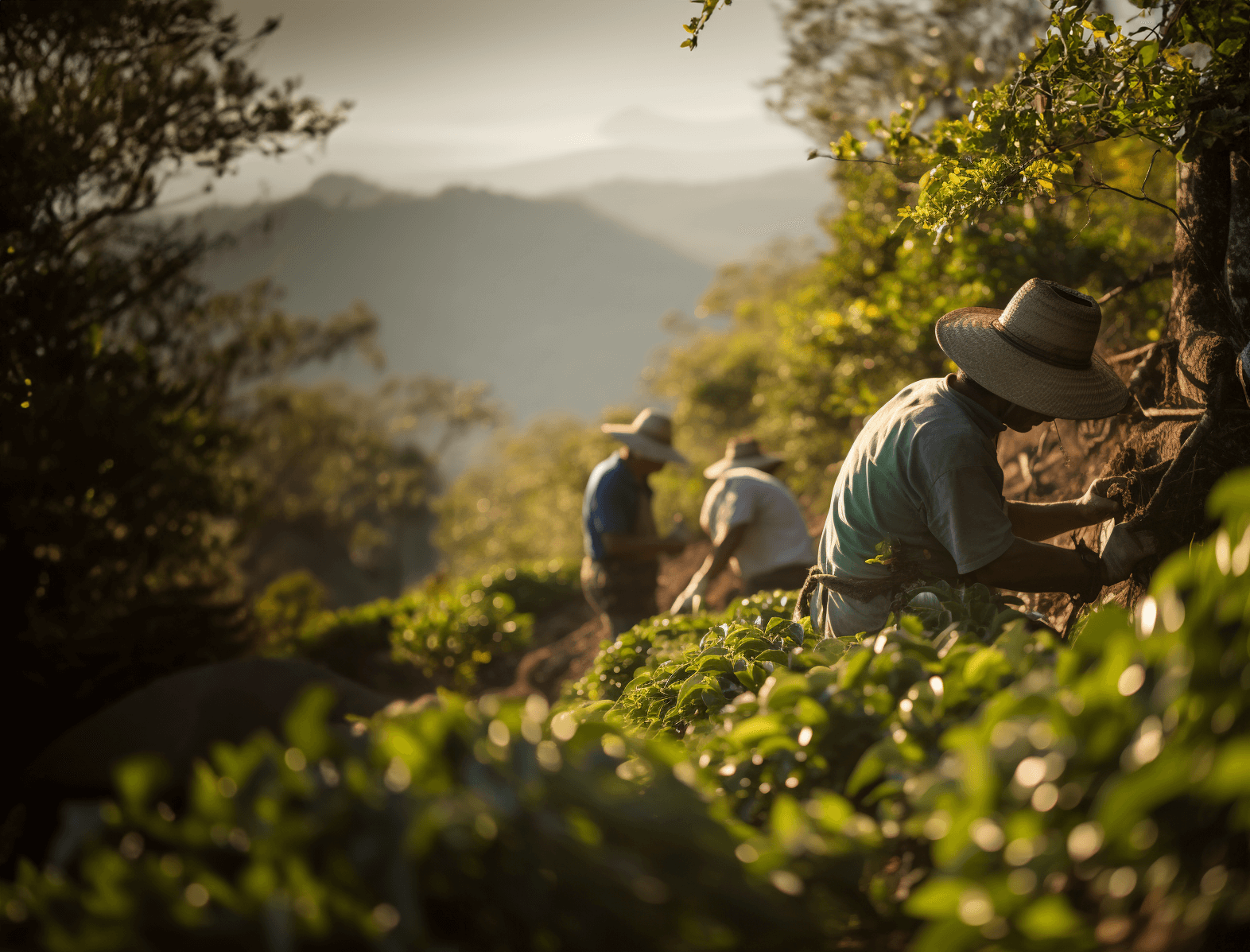
Yerba mate, kombucha – what's the difference?
You might find both of these healthy beverage options in the same aisle at your grocery store. Because of this, if you aren't familiar with yerba mate or kombucha, it's easy to understand how some people might confuse the two drinks.
This article outlines the main differences between yerba mate and kombucha, and also answers a number of related questions about these two healthy drinks. As a bonus, we also discuss some of the details for making yerba mate kombucha!
Keep reading!
Is yerba mate kombucha?
No – yerba mate is not kombucha, and kombucha is not yerba mate.
They are both healthy drinks that can be consumed instead of coffee, energy drinks, or sodas, but they do have some key differences.
Yerba mate is not a fermented drink, and because of this fact, the taste of yerba mate is much different from kombucha. Kombucha brew tends to have a type of vinegar taste, whereas yerba mate does not.
More than that, the fermentation process reduces caffeine content greatly. In fact, kombucha doesn't tend to be very energizing at all. On the other hand, drinking mate is known to boost energy levels and enhance mental focus!
The basics of yerba mate tea
With a rich history of yerba mate being consumed throughout South America, yerba mate is now a popular, worldwide phenomenon.
Yerba mate tea is made from the leaves of the ilex paraguariensis plant – but we won't go into all of those specifics right now. If you want to learn more about how yerba mate tea is made, check out this article on the basics of yerba mate.
Essentially – you can make yerba mate tea using tea bags or loose tea. Or, more conveniently, you can get a can of Mate Libre yerba mate when you're in need of an easy and healthy boost of energy while you're on the go.
What kind of drink is yerba mate?
Yerba mate is a drink that can be enjoyed as a hot tea or as an iced tea – making it the perfect energizer for any time of the year!
You can certainly make your own yerba mate tea, but many people find it much easier to go with Mate Libre's yerba mate drinks, which contain 45mg of caffeine per serving.
Kombucha also contains some caffeine, but it's in such small amounts that it's barely noticeable. Most people definitely don't consume kombucha for its energizing effects, that's for sure!
Benefits of yerba mate tea
Yerba mate possesses a wide range of health benefits.
Many people know yerba mate tea for its energizing effects. More than just a boost of focus and energy from the caffeine in the drink, antioxidants in the tea's leaves give the consumer a smooth, prolonged boost of energy. This helps to avoid caffeine crashes that are often associated with coffee or energy drinks.
Drinking yerba mate can also help to protect and fortify the immune system, can help reduce blood sugar levels and may lower the risk of heart disease. On top of that, some find yerba mate to contribute to enhanced athletic physical performance and endurance, too.
The basics of kombucha
As previously mentioned, kombucha and yerba mate tea are completely different drinks.
They may be found in the same aisle of your grocery store, but they have different brewing processes, tastes, and health benefits.
What kind of a drink is kombucha?
Kombucha is a fermented black tea. A symbiotic culture of bacteria and yeast (SCOBY) is placed in a brewing vessel, where sweetener, tea, juice, spices, and fruit can be added to enhance the flavour of the kombucha.
Some people claim that kombucha has an acquired taste, meaning you may not enjoy the drink the first time you try it. This is due to the slightly bitter taste that most kombucha drinks have. Of course, this taste can be altered by adding various sweeteners (e.g., juice, fruit) to the drink during the brewing process.
Benefits of kombucha
Similar to yerba mate, many people consume kombucha for its range of health effects, as well as the drink's taste.
Firstly, Kombucha can contribute to a healthy gut/digestive system by providing the body with a source of probiotics. Kombucha has also been consumed to help reduce inflammation and to support immune function.
Kombucha contains antioxidants (similar to yerba mate) and thus may play a part in killing bacteria, too.
Can you make kombucha from yerba mate?
Making kombucha is relatively simple. Here are some basic steps to follow for an easy yerba mate kombucha recipe.
Add sugar to a large quantity of boiling water (e.g., about 12 cups) and mix until the sugar is dissolved. Then, add yerba mate to the water and sugar mixture.
From there, you can turn off the heat and allow the kombucha to brew. As a rule of thumb, the longer it brews, the stronger the taste will be.
Strain the mixture if necessary and pour the tea into your kombucha brewing vessel. Only once the contents of the vessel are cool can you add your kombucha starter liquid and your SCOBY. The next step is to cover the vessel with a thin cloth, secured by a rubber band, to allow the brewing kombucha to work its magic.
From there, just let the mixture brew for 1-2 weeks, and you've got yourself some homemade yerba mate kombucha!
The final word on yerba mate, kombucha, and other healthy drinks
Yerba mate and kombucha are two very healthy drinks that come with a wide range of health benefits. Unfortunately, some people still mistake one for the other.
Both drinks have great health benefits – but yerba mate is known more for boosting energy, whereas kombucha doesn't have the same energizing effects.
In case you didn't know, Mate Libre offers some of the best yerba mate drinks, with only 45 mg of caffeine and a wide range of antioxidants.
So, the next time you need a pick-me-up, try some yerba mate tea instead of coffee, kombucha, or an energy drink.
Check out Mate Libre's products today!




